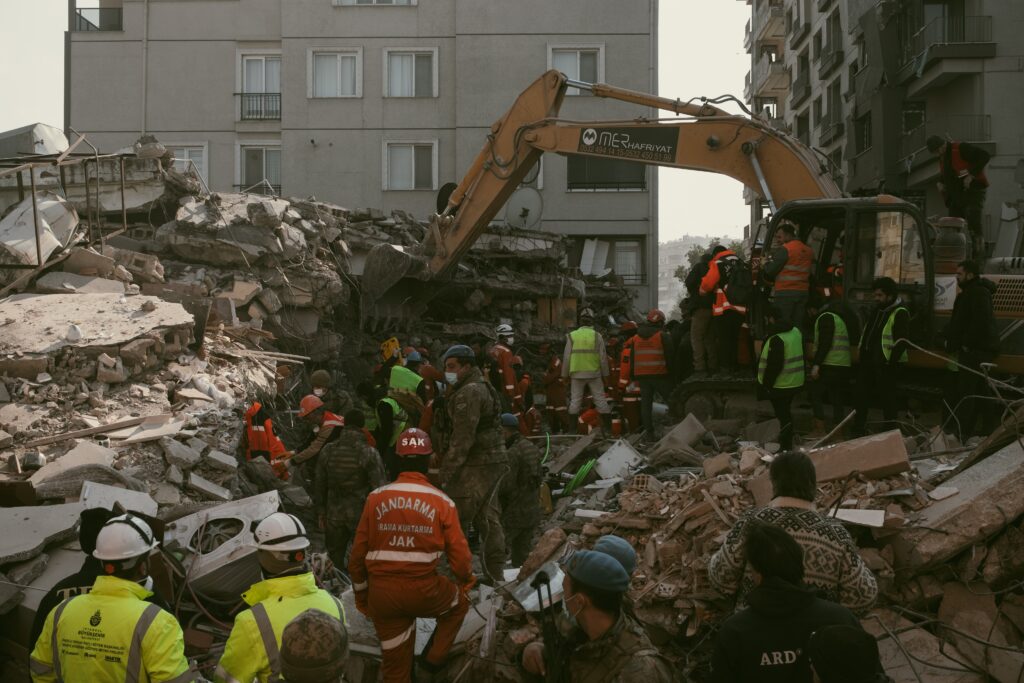On 6th February 2023, a series of large earthquakes hit southern Turkey and northern Syria, followed by hundreds of aftershocks. Thousands of lives were lost in the initial earthquakes and thousands more were, and still are, at risk given the destruction of infrastructure and freezing temperatures in the affected areas.
Efforts in the immediate aftermath of the earthquakes, as well as the days which followed, were focused on search and rescue, finding survivors amongst the rubble of collapsed buildings. Other urgent needs were providing medical care for people with physical injuries and ensuring food, drinking water and shelter for all those who have lost their homes. Now, 3 months after the earthquake, ensuring continuous access to basic health services is also critical.
WHO is supporting the response in both Turkey and the Syrian Arab Republic in several ways:
- dispatch of life-saving medicines and other medical supplies;
- the activation of its Emergency Medical Teams Network to provide essential health services and supplies to care for those in need;
- liaison with disease surveillance and rapid response teams to ensure ongoing surveillance and detection of water-borne, infectious and respiratory diseases, as well as preparedness for any outbreak; and
- support for the mental health and psychosocial response.
Local authorities in Turkey and Syria are receiving support from WHO staff and the WHO’s regional offices and headquarters are still making response efforts and deployments.
If you wish to support victims of this disaster you can do it via World Health Organization’s Lifesaving Response to Earthquakes in Turkey and the Syrian Arab Republic by following this link.




